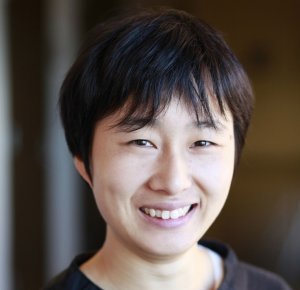Presented By: DCMB Seminar Series
DCMB / CCMB Seminar
"Cluster Ensemble and Batch Correction Methods for Single Cell RNA-Sequencing Data" by Yun Li, PhD (of University of North Carolina)

Abstract: Single-cell RNA sequencing (scRNA-seq) allows researchers to examine the transcriptome at the single-cell resolution and has been increasingly employed as technologies continue to advance. Due to technical and biological reasons unique to scRNA-seq data, clustering and batch effect correction are almost indispensable to ensure valid and powerful data analysis. Multiple methods have been proposed for these two important tasks. For clustering, we have found that different methods, including state-of-the-art methods such as Seurat, SC3, CIDR, SIMLR, t-SNE + k-means, yield varying results in terms of both the number of clusters and actual cluster assignments. We have developed ensemble methods, SAFE-clustering and SAME-clustering, that leverages hyper-graph partitioning algorithms and a mixture model-based approach respectively to produce more robust and accurate ensemble solution on top of clustering results from individual methods. For batch effect correction, we have developed methods based on supervised mutual nearest neighbor detection to harness the power of known cell type labels for certain single cells. We benchmarked all methods in various scRNA-seq datasets to demonstrate their utilities.
Short bio: Yun Li, PhD is an Associate professor of Genetics and Biostatistics at the University of North Carolina, Chapel Hill. Dr. Li is a statistical geneticist with extensive experiences with method development and application on genotype imputation (developer of MaCH and MaCH-admix), genetic studies of recently admixed population, design and analysis of sequencing-based studies, analyses of multi-omics data including mRNA expression, DNA methylation and chromatin three dimensional organization. Dr. Li has been playing an active role in genetic studies of complex human traits resulting many GWAS and meta-analysis publications, including >30 in Nature, Science, Cell, and Nature Genetics. Dr. Li has been leading multiple R01 projects on statistical method development for complex trait genetics. Dr. Li has also been the Director for the Data Science Core of IDDRC (Intellectual and Developmental Disabilities Research Center). Dr. Li has received many awards and became the Thomson Reuters Highly Cited Researcher due to her high impact scientific work. Specifically, her work has been cited >60,000 times with h-index of 64 and i10-index of 113.
https://umich-health.zoom.us/j/93929606089?pwd=SHh6R1FOQm8xMThRemdxTEFMWWpVdz09
Short bio: Yun Li, PhD is an Associate professor of Genetics and Biostatistics at the University of North Carolina, Chapel Hill. Dr. Li is a statistical geneticist with extensive experiences with method development and application on genotype imputation (developer of MaCH and MaCH-admix), genetic studies of recently admixed population, design and analysis of sequencing-based studies, analyses of multi-omics data including mRNA expression, DNA methylation and chromatin three dimensional organization. Dr. Li has been playing an active role in genetic studies of complex human traits resulting many GWAS and meta-analysis publications, including >30 in Nature, Science, Cell, and Nature Genetics. Dr. Li has been leading multiple R01 projects on statistical method development for complex trait genetics. Dr. Li has also been the Director for the Data Science Core of IDDRC (Intellectual and Developmental Disabilities Research Center). Dr. Li has received many awards and became the Thomson Reuters Highly Cited Researcher due to her high impact scientific work. Specifically, her work has been cited >60,000 times with h-index of 64 and i10-index of 113.
https://umich-health.zoom.us/j/93929606089?pwd=SHh6R1FOQm8xMThRemdxTEFMWWpVdz09